Table of Contents
When Do Babies Laugh?
When do babies laugh? It may sound like a quick giggle or chuckle when your baby laughs for the first time, around 4 months old. These first laughs are short and sweet, not quite belly laughs. As babies get close to 6 months, they will start to laugh out loud.
Before they can talk, your baby will talk to you by squealing, giggling, smiling, and just cracking up. Keep the laughter going by blowing raspberries, making funny noises, and playing games like “peek-a-boo.”
If you’re trying to get your baby to laugh, we’re sure you’ve tried all kinds of silly faces, dances, and sounds.
Laughing is a social skill, and it’s a way for your baby to talk to you and the other people they meet daily. Your baby might laugh in their sleep for the first few months of their life. That first real laugh, though, comes a little later. In this article, you will learn about when do babies laugh and some interesting facts about the baby’s laughter.
When do babies laugh?
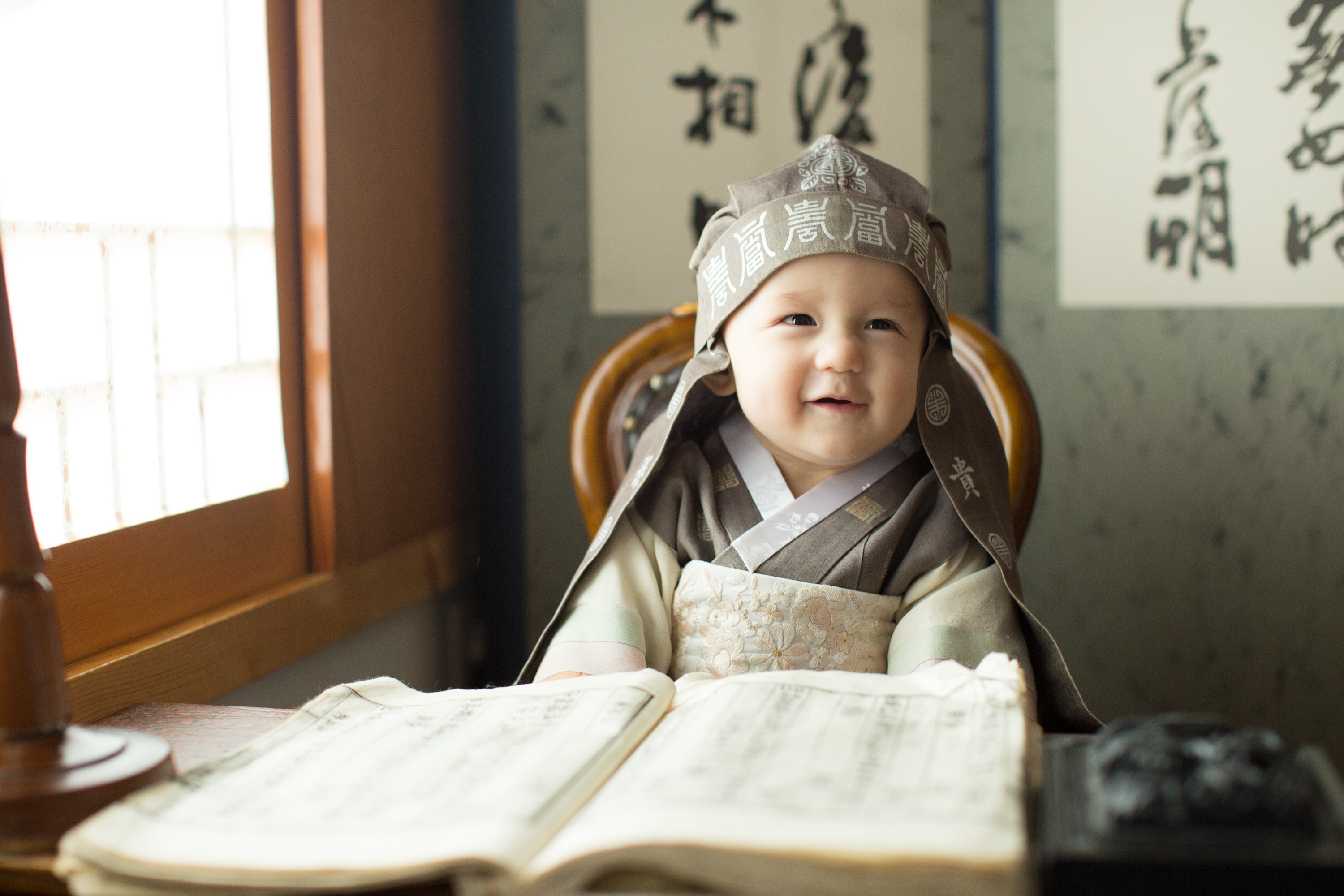
When do babies laugh: Once your baby smiles around 8 weeks old, laughter is one of the next social milestones to look for. Your baby will laugh or giggle in response to something you do when he or she is about 4 months old. Those first little giggles can be hard to predict, and what makes them laugh once might not make them laugh again or a third time.
When they’re 6 months old, your baby will probably laugh hard when you make a funny sound, tickle their tummy, or pretend to eat their toes. Some babies laugh because they can’t help it, but they also learn to laugh as a way to tell you when something makes them happy. You’ll know your baby is having fun when they laugh out loud or squeal with joy.
You probably know how to make your baby laugh better than anyone else. You’re their favorite person, so all their first attempts to talk to you, like babbles, smiles, and laughs, will be aimed at you.
How babies start laughing
When do babies laugh: Socialization starts as soon as your baby is born. Even before they can understand words, smile, or laugh at your jokes, they learn how to communicate by watching the world around them.
Here is a timeline of the skills that babies learn from birth that enable them to begin laughing:
Newborn
When awake, newborns learn about the world through their senses. They use the information they see, touch, hear, taste, and smell to make meaningful connections.
At this age, your newborn recognizes your voice and detects changes in tone. However, they only have one mode of communication: crying.
1 to 2 months
Your baby may try to copy your facial expressions for the first time. Keep your distance and stick out your tongue. Could you wait a moment and let them answer? It will take some time, but they will figure out how to copy you.
You might see your baby’s first smile when he or she is 2 months old. If your baby isn’t smiling, he or she probably will soon. You’ll start to notice your baby’s likes and dislikes. They’ll be happy to see you, and some toys or games may be more interesting to them than others.
Your baby will also make noises with you, cooing at you when they are awake and want to talk.
3 to 4 months
At this point, your baby probably knows how to use smiles to connect with you and other loved ones. “Smile talk” is a way to have short conversations with your baby. If you smile at them, they’ll smile back.
Most babies laugh for the first time when they are 4 months old. If you did something funny, like dance around or made funny noises, they might give you a small laugh.
5 to 6 months
Your living room might feel like an open mic night at a comedy club. When your baby is 6 months old, he or she will likely laugh out loud. Everyone, even your little one’s siblings and grandparents, will want to make him or her laugh.
Now is a great time to play more games with your baby daily. So far, they have spent most of their lives watching the world around them. They are now ready to take part.
Ways to make your baby laugh
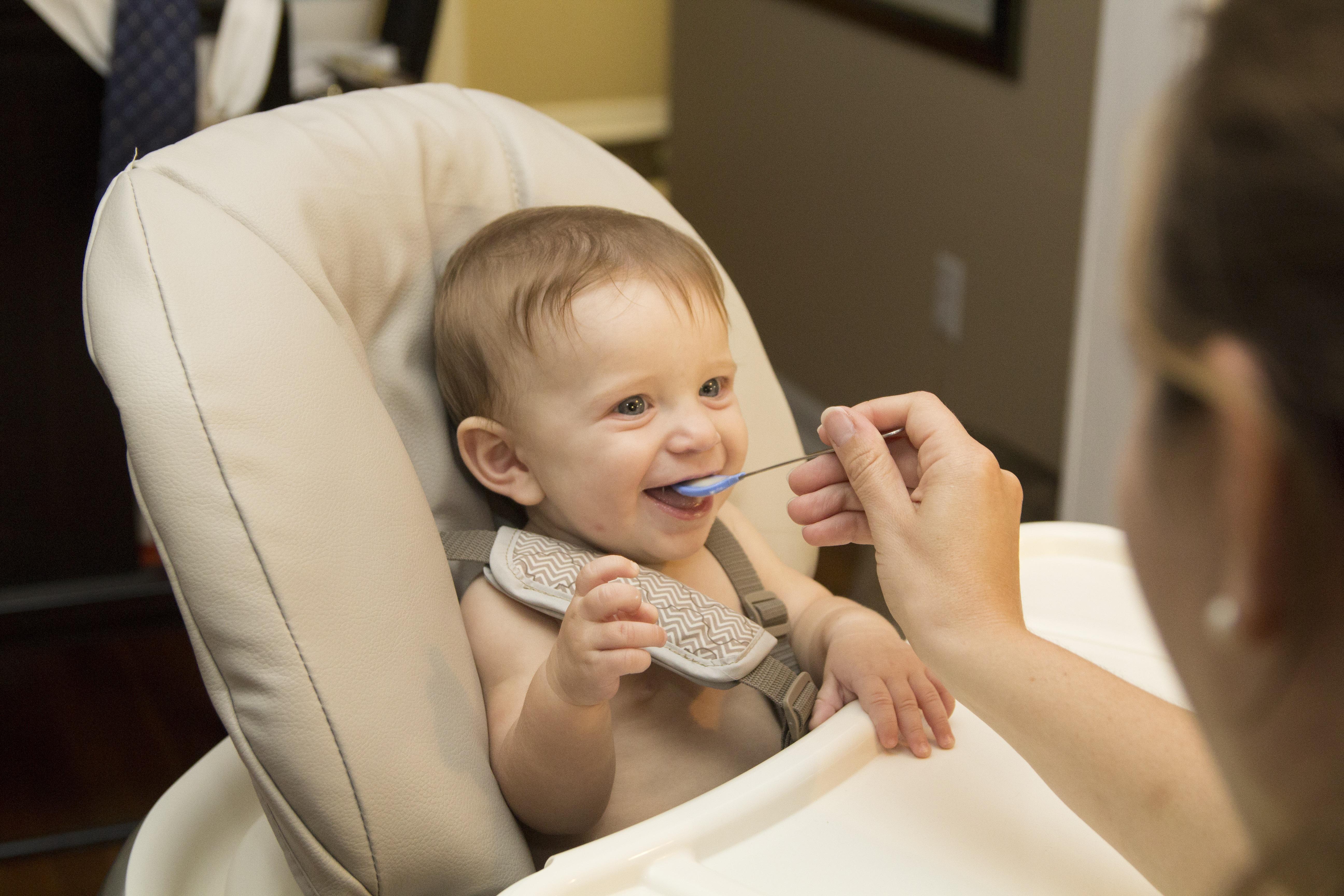
When do babies laugh: If you can’t wait for your baby to laugh for the first time or if he or she already laughs a lot and you can’t get enough, these tricks might do the trick.
- Your baby will pay attention to funny sounds like clicking your tongue against the roof of your mouth, blowing raspberries, or talking in a silly way. If you say it at the right time, they might smile, chuckle, or laugh out loud.
- Playing games with your child is a great way to have fun together. Try games like peek-a-boo or building a tower and knocking it down.
- If your baby is ready, tickling might be the best way to get him or her to laugh. Just be gentle when you touch their skin, which is very sensitive. You don’t have to put as much pressure on that ticklish spot as you might think.
- Babies often like it when you blow raspberries on their stomachs or act like you’re eating their toes. If you try it once or twice and it doesn’t work, take a break and try again later.
When do babies laugh: Interesting facts
1. Babies don’t laugh at jokes; they laugh at people.
Most of us think that a funny joke or action is what makes us laugh, but it’s a way to connect with the people around us. The people around us shape our sense of humor, and even babies’ first laughs show us how they feel about us.
2. Babies can’t laugh on demand.
Psychologists say that laughter is an “honest” social signal, meaning we do it alone. When babies laugh or cry, it’s not because they want to. The same is true for adults.
We don’t always know what makes them laugh, but we know that laughter means they’re having fun and want adults to keep doing what they’re doing.
3. Babies have playful moods.
It’s hard to figure out why babies laugh, and experts still learn much about what’s going on in their brains.
They’ve found that tickling doesn’t always make babies laugh. This shows that, just like adults, babies must be in the right mood to play and laugh. So don’t feel bad if your usual jokes don’t always make babies laugh.
4. Peekaboo is a global hit.
A survey of parents from more than 40 countries showed what games their babies like to play the most. Everyone said that their babies laugh and smile when they play peekaboo. It’s a simple game that’s fun and good for your baby’s growth.
5. Ripping paper is a curious laughter trigger.
In 2015, parents started posting videos on YouTube of their babies watching paper being torn. Many families took part, and the babies all loved it and thought it was funny.
6. Laughter shows us babies understand something new.
When do babies laugh: Researchers in Paris watched as a toy duck was shown to a group of babies to test the idea that babies learn by copying what they see.
Only half of them saw the toy being thrown on the floor.
Surprisingly, only the babies who laughed when the duck was thrown on the floor tried to do the same thing when they had the toy in their hands. Their laughter showed that they knew they could do the same thing.
7. Their laughter is a reward for you.
There is no such thing as a perfect parent, and parenting can be a difficult job. Babies and small children use laughter as a ‘trick’ to keep adults interested and engaged in them. They chuckle to show how much fun they are having playing with you. And their laughter is contagious, making you feel good and deeply connected to them.
8. Babies enjoy life
Babies laugh a lot more than adults. One mother recorded over 500 different laughs from her twin boys in one day, and many parents also reported hearing their children laugh in their sleep. In a nutshell, this shows that they are enjoying their life as a baby.
9. Let babies lead
According to research, playing and having fun with your baby is more than just showing them a bunch of brightly colored games or toys. Let them show you what they’re most interested in and encourage them to discover what they enjoy.
Why do babies laugh in their sleep?
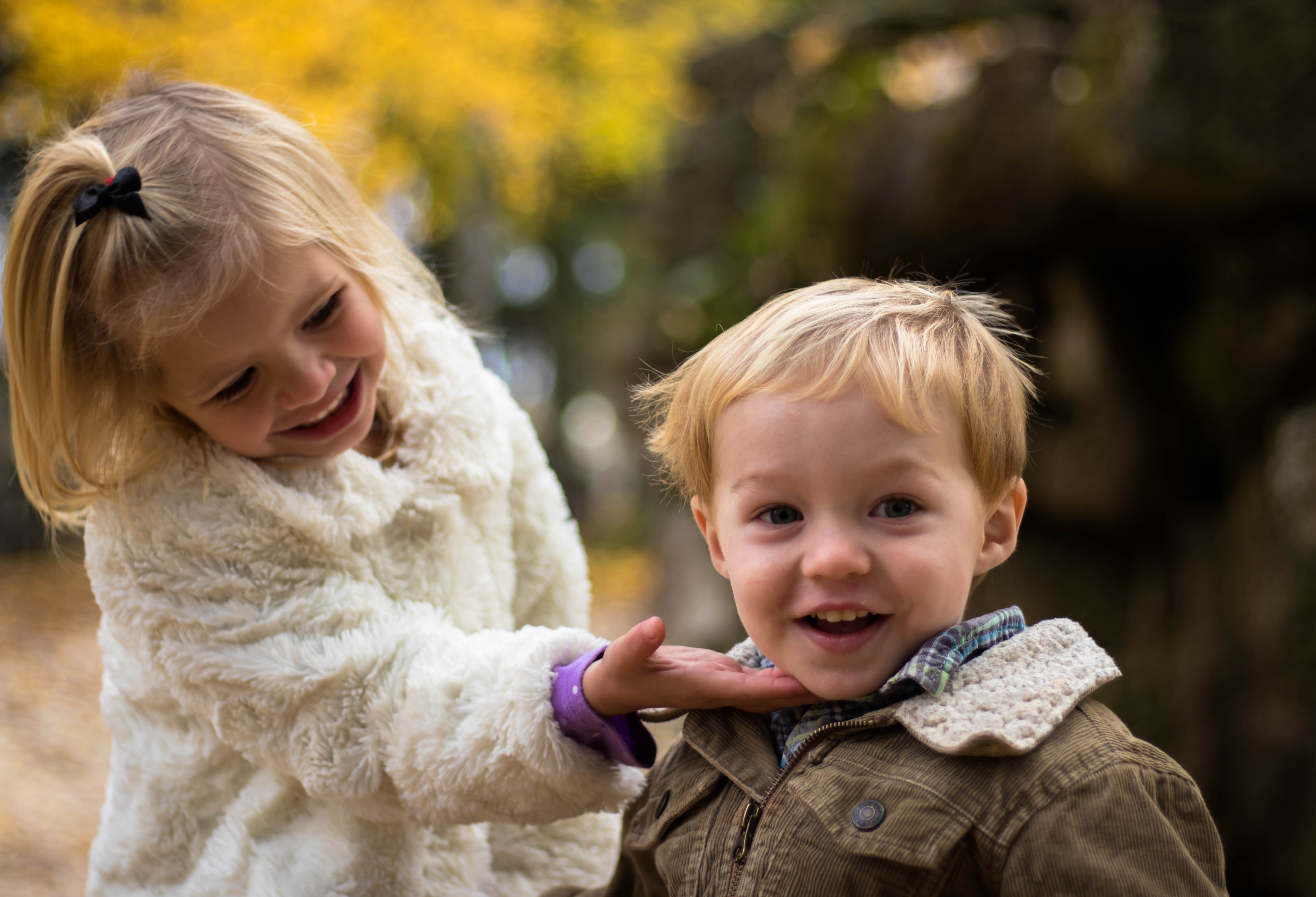
Babies frequently laugh or smile while sleeping. And, while no one knows what your baby dreams about, it’s unlikely she remembers one of your silly faces, as nice as that would be.
Your baby is most likely entering what is known as an active sleep cycle. Babies can make involuntary movements such as smiles, chuckles, and giggles during this stage of sleep.
After your baby starts laughing, what’s next?
When do babies laugh: When your baby starts laughing, you can expect more exciting milestones to follow. Babbling and practicing new sounds will begin around 6 months of age. Many babies learn to clap and point at things that interest them at 9 months. Then they’ll be able to walk and talk on their own. Around their first birthday, your baby may take their first steps and begin saying simple words like “mama” and “dada.”
When do babies laugh: What not to worry about
When do babies laugh: Don’t be surprised if your baby doesn’t laugh at first. Newborns can be tough, especially when it’s time to eat or go to bed. Some of the first times you try to make your baby laugh, she may cry instead of laugh if the timing is wrong or she feels too much.
Remember that your baby is always trying new sounds and ways to talk. The first laugh is just one example of this. There’s no need to worry if your 3-month-old makes a lot of happy sounds like squealing, chirping, cooing, or gurgling but doesn’t laugh (even though you might be understandably impatient to hear her first true giggle). But if your baby is 6 months old and still not laughing, you should talk to your doctor.
Some babies are serious, but that doesn’t make them any less cute. Some adults laugh more quickly than others; the same is true for babies. Over time, you’ll learn how to make your little one laugh, smile, and giggle.
Laughing is the first step toward socialization and communication. With a little time (and a lot to do! ), your baby will soon be waving, pointing, talking, and playing peek-a-boo.
What if your baby isn’t laughing?
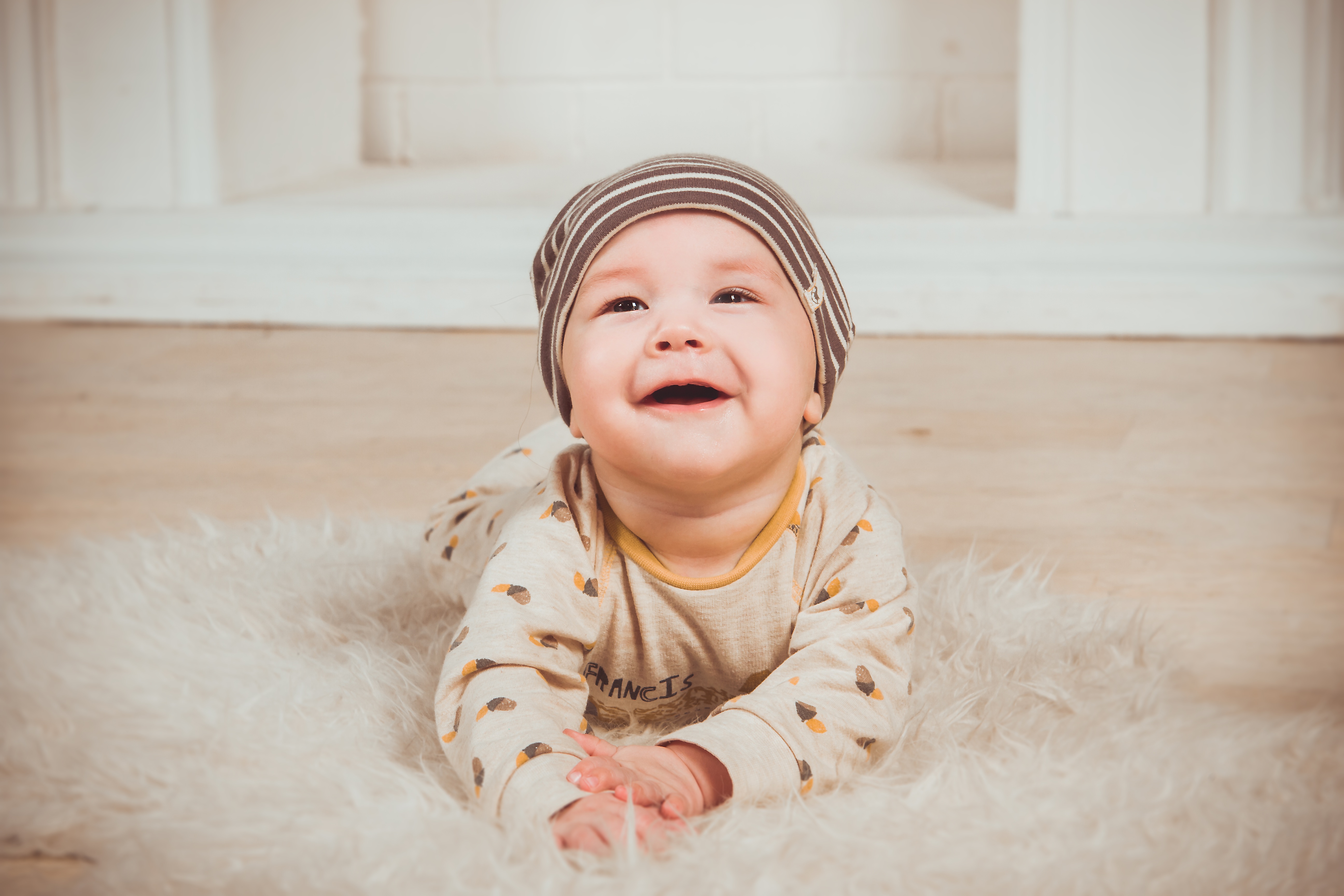
When do babies laugh: Every baby learns and grows at its own pace. But if your baby isn’t laughing by the time they are 6 months old, you should talk to their doctor. In some cases, missing developmental milestones is a sign of a delay in development. The doctor might suggest that you get an evaluation of your child’s development or send you to a specialist in developmental issues.
Talk to your baby’s doctor.
When do babies laugh: If you’re worried your child isn’t laughing or meeting other milestones, bring this up at your baby’s next wellness visit. During the visit, your doctor will probably ask you about all the important developmental milestones your baby is reaching.
If not, make sure to mention these things when you talk.
From there, you and your partner can decide if you want to wait and see how things go or if you want your baby’s doctor to suggest more tests. There may be ways to help your baby grow and learn more like other children.
Final words: When do babies laugh
When do babies laugh: Laughter is a great goal to work toward. When your baby laughs, he or she is telling you something. But keep in mind that every baby is unique and develops and learns at their own pace. Don’t compare your child to another child or another child in your family.
When do babies laugh, then? When they’re having a good time! When your child is four months old, any social situation or funny sound could make him or her laugh.
Bring out your funny side and have a good time with it. There will be laughs and joy for the rest of your life.
FAQs: When do babies laugh
Can a Baby Laugh At 2 Months?
When do babies laugh: Did you know that chimpanzees laugh? Scientists think laughter is an important social tool that makes it easier for people to work together and get along. Even though we get a sense of humor as we get older, we know how and when to laugh from a very young age.
Babies can laugh at any age, but not always for what you might think. During the first few months of a baby’s life, its brain isn’t set up to deal with stimuli or find humor. In other words, a two-month-old might laugh at your jokes, but they won’t understand them yet.
What Sounds Make Babies Laugh?
When do babies laugh: For your baby to grow and learn, he or she needs to be stimulated, and you play a big role in that. You can make your baby laugh and learn to talk by doing simple things with them.
As moms, we get used to the noise of a busy house and sometimes don’t notice how loud it is. But babies are easily distracted, so cut down on background noise if you want to keep your baby’s attention. Less noise makes babies more likely to pay attention and laugh.
Your baby might laugh at any new or strange sound. Go high-tech for a simple game or watch videos on YouTube and apps made just for babies.
Babies can find new sounds exciting and funny, whether a train horn or a dog barking.
Why Does My Baby Not Giggle?
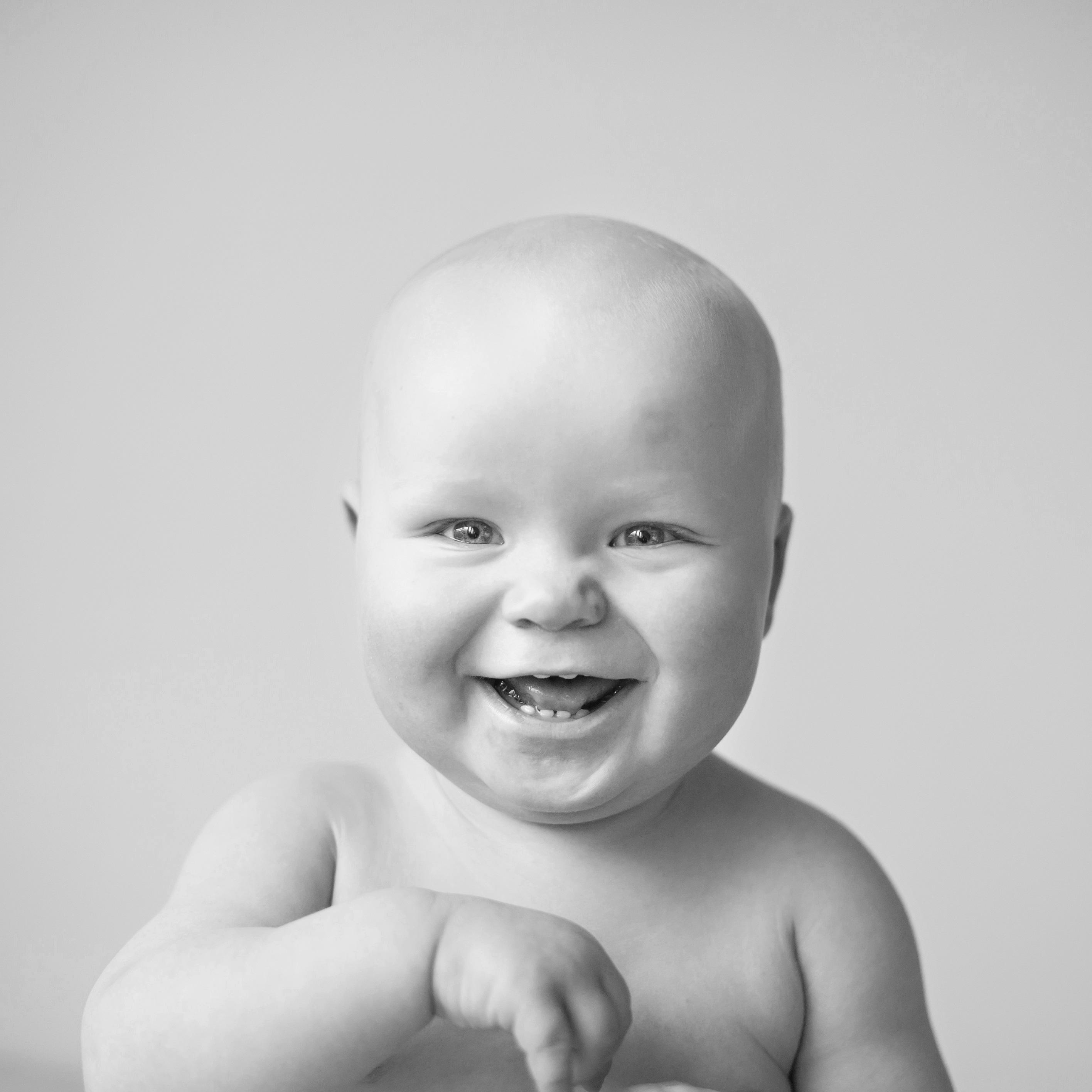
When do babies laugh: Wondering why your baby doesn’t laugh? Most of the time, there is nothing to worry about. One of many milestones is laughing.
It’s important to go to the pediatrician to check on your baby’s progress toward all his or her milestones. A healthy baby can start laughing at any time. If your baby isn’t yet laughing, you should talk about it at the next checkup.
Start experimenting at home while you wait to see your doctor again.
Being with other people is an important part of laughing. A study found that when kids watch a funny cartoon together, they laugh eight times as much. Even when the kids were watching the show alone, they tried to look at the researchers when something funny happened.
Not ready to take care of a room full of babies who like to laugh? You can watch something funny on your own. Let your baby see other people laughing and having a good time.
Can You Tickle Babies?
When do babies laugh: One of the best ways to make a baby laugh is to tickle them. Any fun interaction is a good start, like tickling or messing around. Be natural and watch your baby to see if he or she likes to be tickled.
A baby laughter scientist (yes, that’s a thing!) says that it’s easy to make a baby laugh. All your child needs are someone to play with. More than anything else, what makes babies laugh is being around other people.


